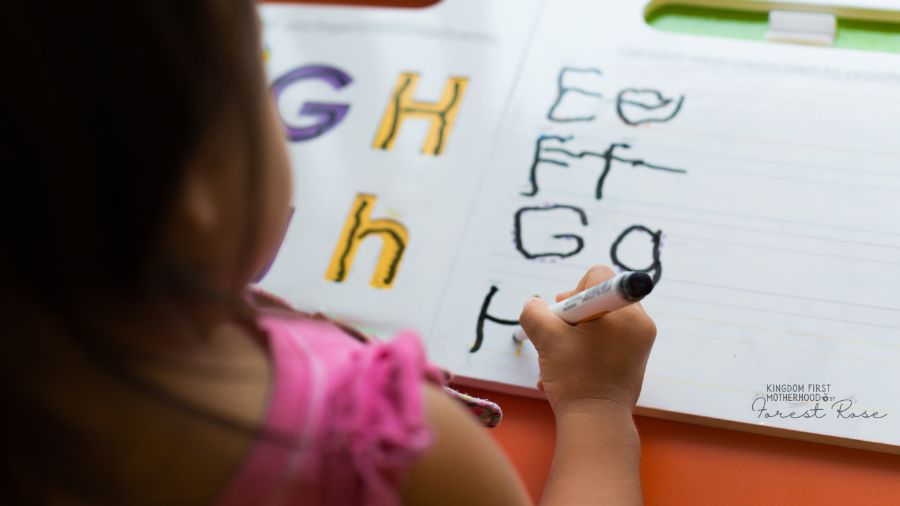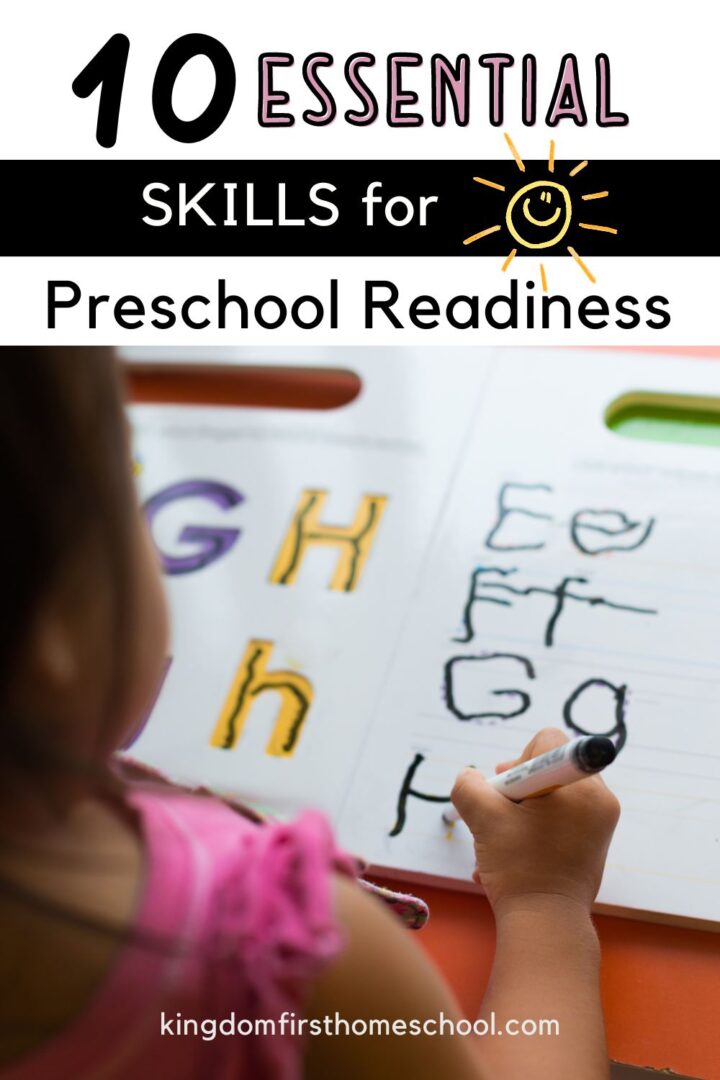What Does Preschool Readiness Really Mean? Preschool readiness is one of those phrases that sounds serious and official, like something from a parenting handbook. But let’s face it, there’s no magical checklist that instantly transforms our little ones into preschoolers extraordinaire. In reality, getting ready for preschool is more about helping our kids feel confident, curious, and ready to take on the world (or at least the preschool classroom). It’s not just about knowing the ABCs or counting to 10 without skipping 7—it’s about giving them the social, emotional, and cognitive skills they need to thrive. So, what exactly are those skills? Let’s jump in and find out!

Section 1: Key Cognitive, Social, and Emotional Skills
While it’s easy to think about preschool readiness in terms of whether your child knows basic academic stuff—like recognizing letters or counting fingers (and toes)—there’s so much more to it!
- Cognitive Skills: This is the fancy term for “thinking skills.” It includes everything from remembering where they left their favorite toy (under the couch, obviously) to solving problems and recognizing patterns. It’s less about flashcards and more about nurturing that beautiful little brain to wonder, question, and explore.
- Social Skills: Social skills help your child play well with others, and I mean really play well—like sharing toys, understanding that it’s okay to lose at “Duck, Duck, Goose,” and knowing how to say sorry when they accidentally knock over someone else’s block tower (which, let’s be honest, happens a lot).
- Emotional Skills: Emotional readiness is all about feelings. Can your child handle frustration without a total meltdown (most of the time)? Do they know the difference between feeling “mad” and “sad”? It’s all about starting to recognize their own emotions and learning to deal with them in a healthy way—whether it’s through a deep breath, a big hug, or even a silly dance party to shake off the grumps.
- Fine and Gross Motor Skills: These are the skills that get your child’s body moving. Fine motor skills are all about those small movements, like using scissors or buttoning a shirt, while gross motor skills involve the big stuff, like jumping, climbing, or balancing on one foot (a.k.a. your child’s secret audition for a future circus career).
Section 2: Activities and Resources to Build Each Skill
Helping your child develop these skills doesn’t have to be a chore – in fact, it can be super fun. Here are some ideas to get you started:
- Cognitive Skill Development:
- Sorting and Matching Games: Grab some everyday items and make sorting a game. Socks, buttons, blocks—whatever you have lying around works! Ask your child to sort by color, size, or shape to strengthen their ability to categorize and recognize patterns.
- Memory Activities: Try classic memory games like “I Spy” or matching cards to help improve attention and recall. (“I spy with my little eye… something that starts with C—yes, it’s the cat knocking over your coffee again!”)
- Story Time Chats: Make reading a daily habit and turn it into a two-way conversation. Ask open-ended questions like, “What do you think happens next?” to encourage critical thinking and language skills.
- Social Skill Development:
- Pretend Play: Pull out the dress-up box or a set of puppets and act out everyday situations. You might be surprised at how many different ways a teddy bear can negotiate who gets the last cookie.
- Playdates: Organize playdates to give your child the chance to interact with peers. These are great opportunities to practice sharing, taking turns, and resolving conflicts.
- Group Games: Fun, simple games like “Simon Says” or “Follow the Leader” are perfect for practicing listening skills and learning to follow directions.
- Emotional Skill Development:
- Emotion Charades: Make a game out of guessing and acting out different emotions. Pull silly faces, make funny noises, and let them figure out which emotion you’re mimicking.
- Create a Calm-Down Corner: Designate a special space with a few comforting items like a favorite stuffed animal, a stress ball, or a little book. Teach your child to go there when they’re feeling overwhelmed.
- Prayer Time: Introduce short, simple prayers that your child can say when they feel upset or overwhelmed. This practice can provide comfort and help them learn to express their feelings and seek peace in moments of stress.
- Motor Skill Development:
- Craft Projects: Pull out the glue sticks, paper, and scissors and dive into craft time. Activities like cutting, drawing, or threading beads help refine those tiny hand muscles.
- Active Play: Head outside and encourage your child to jump, climb, run, and dance. Whether it’s playing tag or an impromptu round of hopscotch, these activities develop essential gross motor skills.
- Musical Play-Based Programs: Consider a preschool-focused homeschool program like MiniBop Music that offers a secular, musical play-based curriculum. MiniBop’s program uses music, movement, and creative activities to foster motor skills, rhythm, coordination, and self-expression—all while having fun. Kids engage in activities that blend learning with play, making education a joyful experience that promotes both fine and gross motor development in a holistic way. Plus, it’s so engaging that they won’t even realize they’re learning!
If you’re homeschooling preschool, you have the perfect chance to blend learning with real life. Whether you’re singing counting songs in the kitchen, exploring the backyard for a nature scavenger hunt, or even having a dance-off in the living room, your home is a wonderful classroom. And by choosing a musical play-based curriculum, you can bring in a joyful mix of music, movement, and creative play that keeps your child’s imagination alive while building essential skills.
Section 3: Checklist for Parents to Assess Preschool Readiness
Not sure if your little one is preschool-ready? Here’s a quick checklist to help:
- Can they follow simple instructions like “Please put your shoes on” or “No, don’t put that in your mouth”?
- Do they show interest in books, stories, or interactive games?
- Are they able to communicate their needs verbally or through gestures?
- Do they engage in basic social activities like sharing or playing with others?
- Can they manage simple self-care tasks such as washing hands or using the bathroom independently?
- Are they beginning to recognize letters, numbers, and colors?
- Do they show curiosity and excitement about learning new things?
- Can they handle being apart from you for short periods without too much fuss?
- Are they able to express basic emotions in a constructive way (and not just with a foot stomp and a pout)?
- Do they have the ability to hold a crayon or scissors correctly?
If you’re finding yourself nodding along to most of these, then congratulations—your child is likely ready to embrace the preschool world!
Make Every Moment a Learning Adventure
Getting your child ready for preschool doesn’t mean endless worksheets or sitting still at a desk for hours. Instead, it’s about turning everyday moments into learning opportunities and following an easy preschool routine. Whether it’s a backyard adventure to explore nature, a kitchen science experiment (that may or may not involve some mess), or simply talking about feelings during storytime, you can make learning a natural part of your day.
Remember, you are your child’s first and most important teacher, and every moment you spend together is a chance to help them grow. Embrace the quirks, laugh at the silly moments, and celebrate the small wins. By focusing on these foundational skills and keeping the learning light, fun, and personal, you’re not just preparing your child for preschool—you’re giving them a love for learning that will last a lifetime. Homeschooling preschool allows you to customize this journey in a way that’s as unique as your child, setting them up for success in the best way possible.

For more homeschooling inspiration, tips and encouragement, make sure to follow KFH on Facebook, Pinterest, Instagram and Twitter, and subscribe to our Newsletter for some FREE GOODIES!
Forest Rose is a God Loving, Blessed Wife, & Mama to 3 girls. She’s passionate about lifting moms out of the trenches that are discouraged, overwhelmed, or feeling alone or isolated. Her hope is to point them to Christ and equip them to rise up with a newfound hope and joy within, that He alone can provide. Besides blogging, she also loves to create printables!



Leave a Reply